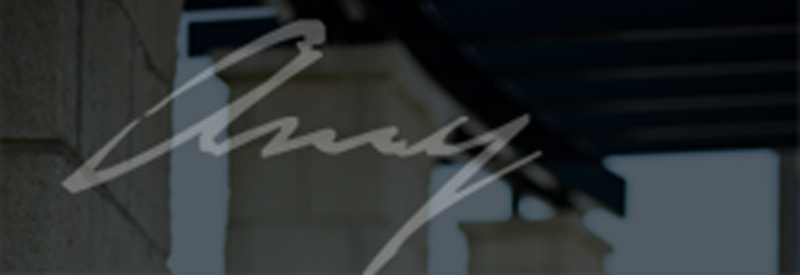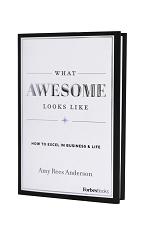“The opposite of depression is purpose.” –(a blog post from Ashley, daughter of Amy Rees Anderson)
There was a book I read as a child called “You Are Special” by Max Lucado that I think perfectly teaches this principle. It’s about a wooden doll named Punchinello, who lives in a town full of Wemmicks (other wooden dolls). They each walk around with star and dot stickers, placing stars on the beautifully carved, well groomed, talented dolls, and placing dots on the old, chipped, clumsy dolls. Punchinello was covered in dots since his paint was damaged, he was awkward, and he talked funny. One day Punchinello runs into a doll with no stars or dots. He asked why she didn’t have any stickers, and she explained that people did try to put them on her, they just wouldn’t stick. She said that the reason is because every day she visits Eli, the toymaker, and invited Punchinello to do so. Though Punchinello was nervous, he stopped to visit Eli in his shop. Eli knew Punchinello by name and explained how happy he was that Punchinello stopped by. Punchinello asked why the dots and stars didn’t stick to his new friend, and Eli explained Punchinello’s incredible worth. He said it didn’t matter what the other wooden dolls thought about him, only what Eli thought about him. He expressed his love for Punchinello, and how unique and special he was. As Punchinello left the toymakers shop, he took Eli’s words to heart. It was then that one of his dot stickers fell off.
This children’s book teaches such a basic but essential principle about our worth. I believe that once we know who we really are and learn more about what our purpose is, negative things don’t affect us anymore, or as the analogy the book uses, they don’t “stick” to us. When we come to know who we are we stop allowing negative comments to get to us, we stop comparing ourselves to others, and we stop feeling lonely, depressed, or anxious. Once we identify who we are and what we are capable of accomplishing, we view EVERYTHING differently. We don’t look at people’s accomplishments with envy, but with appreciation and love. We start to celebrate others’ success, learn from it, and share it. We start to build confidence and composure in ourselves and others. We stop thinking about ourselves and focus on serving or helping others. WE BECOME HAPPY.
I’ve heard a lot of comments lately about how social media and the internet have caused increased levels of depression, anxiety, suicide, and other mental illness. First and foremost, I’ve been there. But it’s my belief that if we reframe the way we view social media, it can be an incredible tool for good. Let me explain…
A few months ago, someone who I really respect invited me to do a week long social media fast. This meant that I would give up all social media (Instagram, Facebook, Twitter, etc.) for a full seven days to see what happened and how my mood changed. I learned an incredible amount in this short time. For one, I learned that I spent way too much time on my phone, and I had a lot more time on my hands to learn and develop new skills and talents. I also learned that I was developing a very bad habit of comparing myself to others, falling into a common cycle of self-doubt and insecurity. Most importantly, I learned that I was viewing social media all wrong, allowing the “dot stickers” to stick to me.
Through this week-long fast, I learned that social media can be an incredible tool for good… IF I allow it to be. I realized it’s a way to connect with family and friends, to be inspired, to see others be vulnerable and share real life challenges and struggles, to help serve others, to learn, to see the community come together and huddle around someone who needs an extra lift or boost, to celebrate and share our joys and greatest life achievements, to save incredible memories, to document our family history, and to bond with those we might have never expected otherwise.
To better explain this point, I’ll share some very tangible examples. I’ve seen many people recently on social media who have expressed a loss in the family, miscarriage, divorce, illness, heartbreak, depression, anxiety, difficulties with body image, and many more. I’ve also seen a community of friends, family, and strangers huddle around whoever is undergoing this, and express love, concern, empathy, and encouragement. I myself have learned a great deal from these people, sometimes strangers I don’t even know, about the courage and vulnerability is takes to share hard things. I learned that I can learn from other people’s experiences, rather than having to learn certain hard lessons myself. I learned that I can use social media as a tool to know who I can help. That might be taking dinner to someone who recently had a baby, sending a text to someone who is having a hard day, or bringing ice cream and my listening ears to someone who recently experienced a loss. I learned that I can get some great ideas from others about how to decorate my house, tips for starting a business, ways I can raise a family, shop on a budget, and find adventure. I learned that if I reframe the way I view social media, I can use it as a tool and be extremely happy.
I want to extend two invitations to everyone reading this. First, allow yourself to be more vulnerable on social media. That includes sharing successes, trials, and things you are learning through this crazy journey of life. You never know when it can help someone else. Second, try to reframe the way you view social media. If you feel like you are caught in the trap of self-comparison or depression, maybe try focusing your thoughts on the good that can come if you allow it. Reread the list I mentioned above and try to pick just one of the points to focus on.
I know that social media is what we make it. It can be one of the greatest tools or crumble us to pieces. Whatever the case, WE choose the outcome. WE choose whether or not “the dots”, or how other people view us, stick to and affect how we view ourselves. Since reframing how I view social media, I’ve been so much happier for others AND for myself. I’ve felt more confident and composed. I’ve found its purpose and fought off the monster of depression.
~Ashley Anderson Hill (filling in today for my mom, Amy Rees Anderson)


2 Comments
Amy, I love this post! The Max Lucado story of Eli and Punchinello has SO many layers of positive messages. Also, your advice and example of being more open about our vulnerabilities is a really big deal. (I know you’ve also mentioned how valuable this is in running business, which is so counterintuitive) So many on social media and in life tend to do the opposite, pretend nothing is wrong and that life is perfect. I’m going to try and follow your example more often. Thanks!
Dear Amy, I read that book to my grandchildren whenever they stayed at my house. Thank you for the reminder. I think now that they are teenagers and early 20s, I will give them each a copy for Christmas.
Your perspective on social media is spot on. I see it as a tool and used with a purpose for good it is good. Used to mame and cut, it is bad.
I only write encouragement. I don’t know how to write anything else. I have been using social media far less than ever, but when I use it, it’s to add hope to someone’s day.
Your posts consistently add hope to mine.